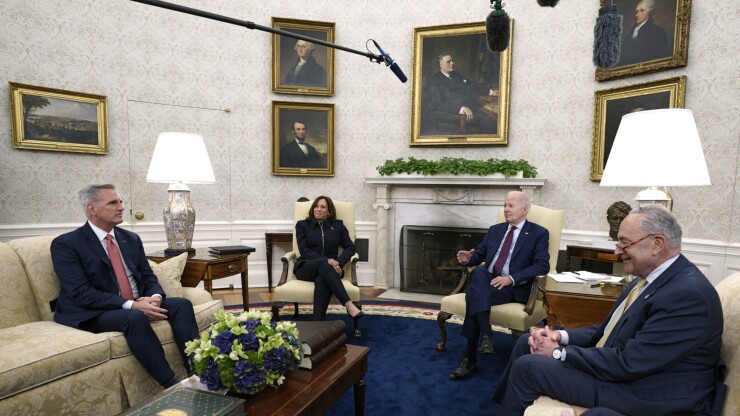
If the fight over the debt ceiling does not result in a deal to avoid default, the status of millions of government payments will be thrown into limbo, with ripple effects that could indirectly halt or delay funds for non-government transactions.
U.S. Treasury Secretary
Government payments, particularly Social Security direct deposits, are generally automatic, occurring on a set schedule. Any uncertainty would make payment flows unpredictable and subject to emergency decisions that could change by the day. Even if the payments are made, recipients relying on the payments or processing the transactions wouldn't know what to expect with certainty.
"It's important to know that any disruption would not be limited to actual payment but the company that has contracted with the government," said Rachel Snyderman, senior associate director of economic policy at the nonprofit Bipartisan Policy Center, based in Washington, D.C.
A sample of payment companies that help manage government disbursements includes
The U.S. Treasury offers
"If it got to a point where there was picking and choosing which payment the government was going to make, it would lead to chaos, not to mention the opportunity for fraud and all kinds of operational challenges," Snyderman said.
The amount of payments that flow from the government is substantial. More than 70 million people were receiving Social Security benefits as of March 2023, according to the
"If you are a payment processor that works with government payments, you will not know if the money will flow as it does normally, so you will be in a difficult position to know if you will be getting revenue from the government," said Nicholas Economides, an economics professor at New York University's Stern School of Business.
After months of back-and-forth and
"It's most likely that some compromise will be reached," Economides said, adding that if there is a framework for a deal, negotiators could agree on a short-term delay to work out the details of a final agreement.
If the government does run out of money, the most likely scenario is that it will prioritize paying outstanding bonds that come due, then entitlements such as Social Security and salaries for federal employees, Economides said. Other government disbursements, such as payments to contractors, could get delayed, the NYU professor said, adding that even this scenario is not a certainty.
"It's really hard to say. The government hasn't said what it will do if it runs out of money," Economides said. "The Treasury probably has a plan but it is not public." The Treasury Department did not return a request for comment.
If payment processors don't know which payments will be made, which will be delayed and which will be cut entirely, that alone would cause considerable management challenges. "There is no operational playbook for what happens," Snyderman said. "It can be a headache for government workers and those who depend on government services."
There would be a downstream effect on payments outside of government agencies. Financial experts have said a
If government payments can't be disbursed, then the recipients do not have funds to make their own payments, for bills or other expenses. Any impact that suppresses economic activity would further lower payment flows outside of the government.
"The payment ecosystem, involving both government and private sector entities, could experience overall strain and uncertainty, potentially leading to economic instability," said Richard Crone, a payments consultant. If government contractors do not get paid, that will impact their own cash flow and ability to meet their obligations, Crone said.
"This shows the interconnectedness of the payment system and what the ripple effects could be even if there is short-term crossing of the [June 1] date," Snyderman said.






